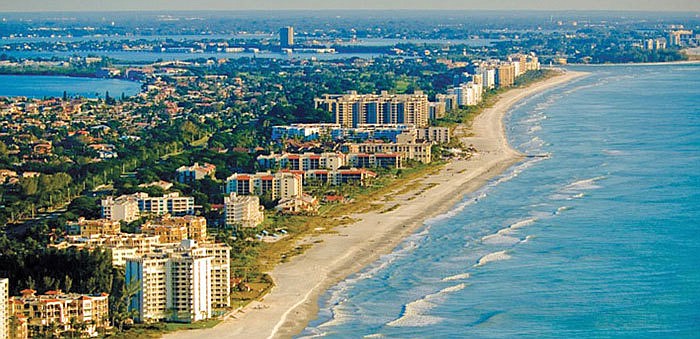- November 23, 2024
-
-
Loading

Loading

No one on Longboat Key made it here because he or she practiced in professional life the philosophy of never growing, of rejecting changing with the times. To succeed, all Longboaters knew along their way, and still know, that old business maxim: You grow, or you die. You change and adapt, or you die.
That same philosophy applies to cities and towns.
That same philosophy applies to Longboat Key.
But there are a lot of deniers. They have been part of the Florida landscape and culture for 50 years. They fight change. They fight growth. They fight development.
They have the false belief that Longboat Key, Sarasota and Florida — one of the leading growth states every year for 50 years — will not and should not change from the oasis to which they moved. And these deniers often have the false belief their local governments are to serve their view of how it should be. It’s an incongruous, anti-property-rights perch: They have what they want, they obtained their development rights, and that’s where it should stop.
Longboat Key has its share of those deniers and anti-growth, anti-change advocates. In fact, you may have heard recently from one of its leaders — Bob White, one of the founders of the Islandside Property Owners Coalition, the organization that sued the town — and won — to block the Longboat Key Club and Resort’s proposed expansion on the club’s Islandside property in the period from 2008 to 2010.
White this past week sent a letter to residents urging them to vote for Town Commission candidate Gene Jaleski over candidate and former Longboat Mayor Jim Brown. This is a re-run of an old show — the White and Jaleski pair. White and IPOC supported and helped fund Jaleski’s campaign for Town Commission nine years ago. They were on the same side then — against the Key Club’s proposed expansion. So it’s no surprise White is backing Jaleski again.
But here is something Longboaters and readers of White’s letter should know: It’s fake news. Purposely incomplete and vague news. Designed, of course, to mislead voters. This is politics.
Writes White: “Jim Brown voted for the original, massive, Longboat Key Club plan that was overturned by the courts.” That is true, although the word “massive,” of course, is White’s editorial comment. White doesn’t explain, however, that when Brown and the majority of his fellow commissioners voted to approve the Key Club’s development plans, they did so on the advice of the town attorney that the Key Club’s plans complied with the town’s existing zoning codes for that property at the time.
What’s more, White does not explain that the commissioners were not voting whether the Key Club’s plan was too massive, too high or too ugly. They were voting in a quasi-judicial capacity as quasi-judges on whether the club’s plans complied with the town’s laws and ordinances. That was their duty: Measure the application against the law.
Writes White: “In addition, he signed the ordinance relaxing the development requirements for Planned Unit Developments after the court’s decision.” Call that spin. How do you know White is accurate with that statement? That may be his interpretation, but it might not be yours if you knew the specifics, which White does not provide. Or, who knows, what White is making reference to could have been prescribed by the town attorney. You don’t know; he’s purposely vague (and misleading).
Here’s the kicker: “As chairman of the Planning and Zoning Board, he is currently trying to get approval of a new ordinance (2016-32) that would create new zoning districts that make it easier to allow more commercial development and greater building heights, up to eight stories.”
Even Chuck Whittall would argue that statement is false.
The idea of creating a planned unit development is to allow extensive flexibility to developers, giving them leeway on such matters as height, density and setbacks. But in the newly proposed ordinance, Brown and planning board members crafted language that put a cap on heights, lower than what already exists on the Key in many nonconforming properties and not previously specified in the town’s PUD laws. The proposed ordinance also imposes highly restrictive setback requirements that will discourage higher buildings. Ask Whittall; he’ll tell you so.
White touts Jaleski as a long-term advocate for controlling tourism and density. You could say the same for Brown. But there’s a big difference.
Jaleski wants no more growth. (No growth, you atrophy, you die.)
Brown, on the other hand, recognizes the need for the Key to evolve. He has been volunteering his expertise as an architect and member of the town’s Planning and Zoning Board to address what Urban Land Institute experts identified in 2013. They were explicit after months of studying the Key and talking to residents:
The town’s zoning codes and comprehensive plan need to be rewritten (see box).
Indeed, nearly all of the condominiums on Longboat Key (outside of the Key Club gates) are not in compliance with the town’s codes. To address this as an essential element for modernizing the Key, the planning board and town staff have spent more than two years trying to revise the codes that will make it feasible for the nonconforming properties to redevelop and meet the future demands of the marketplace.
Jim Brown has been helping the town adapt and adjust. Bob White and Gene Jaleski want it to stand still.
You know from your own experience, that’s a death knell.
This brings to mind a comment 20 years ago by a now-deceased, colorful Longboat Key activist, Rainer Josenhanss. “There are no stupid people on Longboat Key,” he said. He was, and is, right. Longboaters know what it takes to prosper. You grow, or you die. You adapt and change, or you die. On your ballot, take the former.